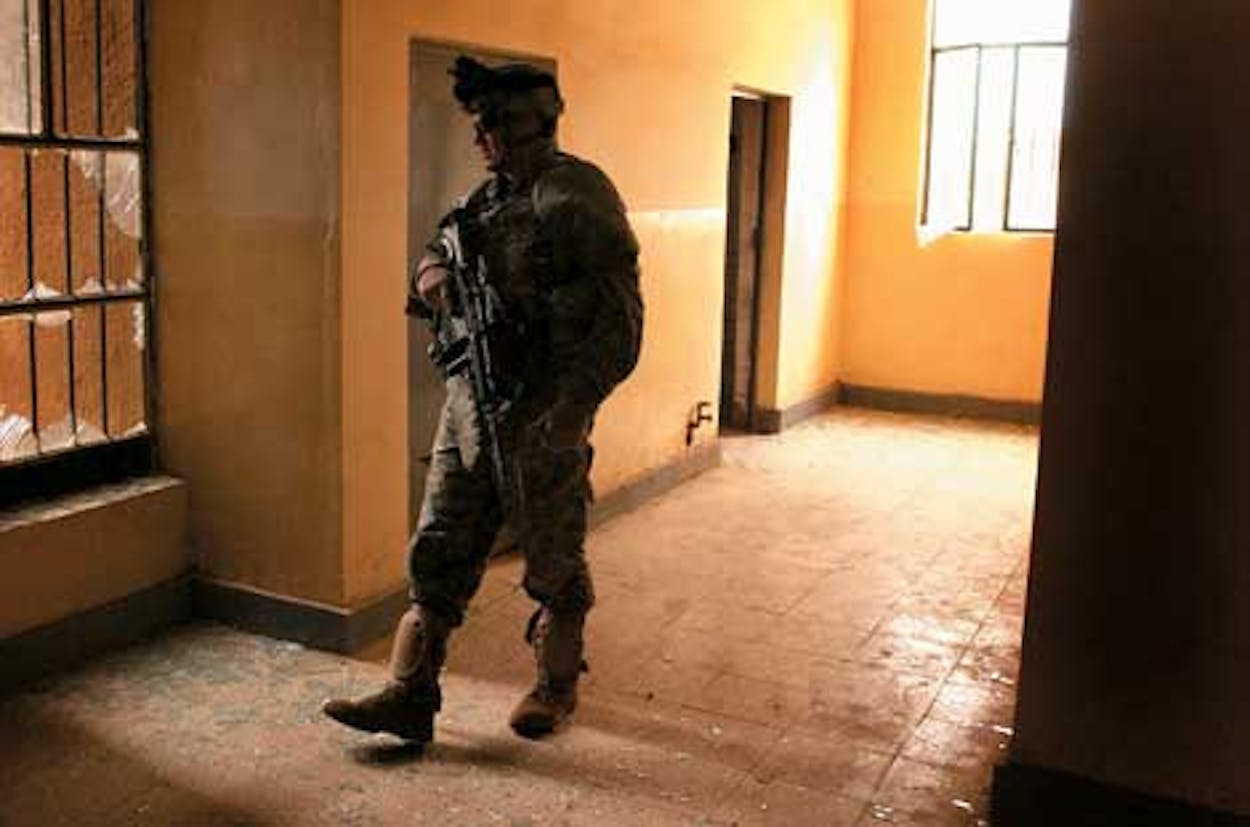Of the many concerns I have about the Iraq war, one of the biggest is this: The media have done an inadequate job, abetted by the Bush administration’s no-images-of-flag-draped-coffins dictate, of covering the massive loss of life, limb, and livelihood these past five-plus years. This is true all over the country, but it’s especially an issue here in Texas, which has more of its sons and daughters currently deployed than any other state—and is ranked second, behind California, in the number of casualties sustained. As of June 1, 386 Texans had been killed in Iraq, and 2,891 had been wounded, many in ways (head injury, amputation) that effectively eliminate the possibility of returning to a normal prewar existence. And we who have the power of the pen, lens, and keystroke haven’t been nearly as aggressive in telling their stories, and those of their families and communities, as we should have been.
We’ve tried to do our part here at Texas Monthly, devoting an entire issue (March 2006) to the subject of Texans in Iraq and publishing stand-alone pieces as space and circumstances have warranted. The best of these include Pam Colloff’s moving portrait of life at Fort Hood, from which tens of thousands of troops have been sent to the Middle East (“Life During Wartime,” February 2004); Mike Hall’s dispatch from Brooke Army Medical Center, in San Antonio, where he visited soldiers who’d been burned, shot, or blown up (“The Survivors,” March 2005); John Spong’s masterful you-are-there profile of his high school buddy who led a surgical unit in Ramadi, in the thick of the action (“Carlos Brown Is a Hero [No Matter What He Says],” May 2007); and Robert Draper’s gut-wrenching story about the courageous young men of Bravo Troop (“‘I Think We Got Blown Up for Nothing,’” January 2008), whose brief tour in central Iraq was a disaster—which is why he described them as “lab rats in a slipshod military experiment.”
This month, we add three more examples of the foregoing to the mix. My interview with retired lieutenant general Ricardo Sanchez (Texas Monthly Talks), who commanded coalition forces in Iraq and had direct responsibility for the infamous Abu Ghraib prison, reveals that, despite what we’ve been told, not everyone in the chain of command had a favorable view of the war’s prosecution. Castroville native Matt Cook’s brutally frank recounting of his own experience in Iraq (“Soldier”) is one of the best battlefield-level explications I’ve read anywhere. And the passionate argument against the war (“Mission Impossible”) by our founding editor, Bill Broyles, is sure to provoke a heated response in some quarters—but given Bill’s valorous service in Vietnam and the fact that his eldest son, David, selflessly did a stint of his own in Iraq, his intellectual and moral credibility can’t be challenged.
These are tough times for our state, our nation, and our world. We all have a role to play in sorting them out and working toward a peaceful, sensible resolution. As citizens—maybe I should say, as voters—our job is to make rational decisions, informed by facts rather than emotions, about the collective good, about priorities, and about what’s truly in the national interest. Those of us who are journalists can advance the discussion by informing, educating, and offering context and perspective. In our little corner of the world, we’ll continue to do just that—as I type these words, Spong is heading off to Afghanistan to report yet another story about Texans in harm’s way—and we’ll keep pressing our colleagues elsewhere to step up their own efforts.
Next Month
The best swimming holes, what it’s like to be a blind teenager, Obama versus McCain in Texas, LBJ’s legacy, and Sarah Bird comes around (finally) on breast-feeding.









